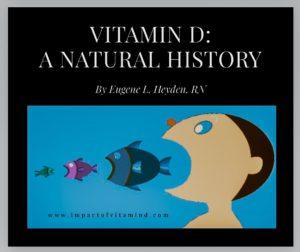Last revision: 07-11-24
By Eugene L. Heyden, RN
I appreciate your enthusiasm, I really do. But may I suggest, next time, before you head out for a walk, you take the time to put on some clothing. This the 21st Century, you know! And I’m curious, how did you learn that both walking and sunshine exposure could reduce your risk of dementia? … Oh, you didn’t know. Then I’ll get you up to speed.
It would appear that physical exercise helps with brain function. Better blood flow, improved oxygenation—that’s what exercise does, and that helps the brain. But there is more:
“Exercise helps memory and thinking through both direct and indirect means. The benefits of exercise come directly from its ability to reduce insulin resistance, reduce inflammation, and stimulate the release of growth factors—chemicals in the brain that affect the health of brain cells, the growth of new blood vessels in the brain, and even the abundance and survival of new brain cells.” (Godman, 2014)
It just so happens that walking is one of the easiest ways to exercise and reap the rewards. Oh, I’ve got studies!
In one recently published study, nearly 80,000 adults, with an average age of 61, were followed for a period of 7 years (del Pozo Cruz, 2022). The subjects who walked approximately 10,000 steps per day (4–5 miles), demonstrated a 50% reduction in the risk of dementia. And even those who walked less also benefited. With an average of 3,826 steps per day (approximately 2 miles, maybe a little more), a 25% reduction in the risk of dementia was achieved. Likely these were not baby steps. But in any case, “Steps performed at higher intensity resulted in stronger associations.” (del Pozo Cruz, 2022) Speaking of higher intensity, judging from the way you walk, I think you’ve got that covered!
The findings of another recently published study, of elderly Japanese men and women, also strongly suggests that the more you walk, the greater the protection you have against dementia. According to the authors, “Time spent walking has a considerable preventive impact on incident dementia, even a 30‐minute increase in walking time per day.” (Tomata et al., 2018)
From another study on the benefits of walking, we learn the following:
“Exercise is extremely important to healthy aging, reducing the risk of cardio-vascular disease, susceptibly to stress and depression, and improving cognitive functioning. Physical activity is an important modifiable risk factor for reducing the risk of dementia and cognitive decline in older age. Exercise also has a direct role in brain health; even light exercise in older adults (55–80 years) can increase the volume of the anterior hippocampus, a key part of the brain network that supports spatial memory (our memories of place and spatial relations). In the same age group, research has shown 30 min of exercise may increase neural processes underlying semantic memory activation (our recall of objective knowledge) in healthy older adults.” (Roe et al., 2020)
The authors conclude:
“Being physically active in older age is now identified as one simple, low cost strategy that can help reduce the burden of dementia, the greatest global challenge for health and social care in the 21st century.” (Roe et at., 2020)
So, there is little doubt. All the walking you are doing, and at such a vigorous pace, may help prevent dementia from creeping up on you. Plus, I see you are walking in a green space, far removed from noise and air pollution–an environment that is most favorable for this activity (Roe et al., 2020). Perhaps you recognized early on that air pollution is a risk factor for dementia (Roe et al., 2020). “One study showed people aged 50 plus living with high levels of air pollutants have a 40 percent greater risk of developing dementia as compared to those living with lower air pollution.” (Roe et al., 2020) Aside from your lack of clothing, as disturbing as this may be, you seem to be making all the right moves. And I see one thing in particular that pleases me. You are out there getting plenty of sunshine. And you know what that means! If done right, you are generating a lot of vitamin D.
Vitamin D, the “sunshine vitamin,” just happens to help prevent dementia, if adequately acquired. And that big smile on your face, certainly that’s from all the circulating endorphins generated in the skin in response to sunlight (Baggerly et al., 2015). All in all, clearly you are living a healthy, happy life, and all the while slashing your risk of acquiring dementia later in life. Not to detract from the benefits of walking, vitamin D alone might just do the trick.
Now regarding vitamin D and the brain . . .
“Vitamin D is a neurosteroid hormone that regulates neurotransmitters and neurotrophins. It has anti-inflammatory, antioxidant, and neuroprotective properties. It increases neurotrophic factors such as nerve growth factor which further promotes brain health.” (Sultan et al., 2020)
Of course, vitamin D sufficiency promotes brain health. Look at all it does!
- Vitamin D promotes the production of factors that encourage nerve growth and synapse formation (Sultan et al., 2020)
- Vitamin D influences the production of various neurotransmitters, signaling molecules involved in normal nerve function (Sultan et al., 2020)
- Vitamin D helps preserve the life of the nerve cell (Sultan et al., 2020)
- Vitamin D, “has shown neuroprotective effects including the clearance of amyloid plaques, a hallmark of Alzheimer’s Disease.” (Soni et al., 2012)
- Vitamin D helps protect the brain from oxidative stress and neurotoxic situations (Sultan et al., 2020)
In view of the above, is it any wonder the following relationship has been found?
“Associations have been noted between low 25-hydroxyvitamin D and Alzheimer’s disease and dementia in both Europe and the US. Similarly, the risk of cognitive impairment was up to four times greater in the severely deficient elders in comparison with individuals with adequate levels.” (Soni et al., 2012)
To conclude: It pleases me you are so committed to slashing your risk of dementia—all the walking and all the sunshine. And that smile of yours is so contagious! It alone, brightens up my day. But I must warn you. Be careful out there! You could step on a squirrel. And please, try to prevent sunburn (a little clothing would help). Regarding the issue of sun safety, it looks like I’ll need to get you up to speed on this, too.
References
Baggerly CA, Cuomo RE, French CB, Garland CF, Gorham ED, Grant WB, Heaney RP, Holick MF, Hollis BW, McDonnell SL, Pittaway M. Sunlight and vitamin D: necessary for public health. Journal of the American College of Nutrition. 2015 Jul 4;34(4):359-65. https://www.tandfonline.com/doi/abs/10.1080/07315724.2015.1039866
del Pozo Cruz B, Ahmadi M, Naismith SL, Stamatakis E. Association of Daily Step Count and Intensity With Incident Dementia in 78 430 Adults Living in the UK. JAMA Neurology. 2022 Sep 6. https://jamanetwork.com/journals/jamaneurology/fullarticle/2795819
Godman H, Regular exercise changes the brain to improve memory, thinking skills. Harvard Health Letter. Apr 2019. https://www.health.harvard.edu/blog/regular-exercise-changes-brain-improve-memory-thinking-skills-201404097110
Roe J, Mondschein A, Neale C, Barnes L, Boukhechba M, Lopez S. The urban built environment, walking and mental health outcomes among older adults: a pilot study. Frontiers in public health. 2020:528. https://rb.gy/esv9fn
Soni M, Kos K, Lang IA, Jones K, Melzer D, Llewellyn DJ. Vitamin D and cognitive function. Scandinavian Journal of Clinical and Laboratory Investigation. 2012 Apr 1;72(sup243):79-82. https://www.tandfonline.com/doi/abs/10.3109/00365513.2012.681969
Sultan S, Taimuri U, Basnan SA, Ai-Orabi WK, Awadallah A, Almowald F, Hazazi A. Low vitamin D and its association with cognitive impairment and dementia. Journal of aging research. 2020 Apr 30;2020. https://www.hindawi.com/journals/jar/2020/6097820/
Tomata Y, Zhang S, Sugawara Y, Tsuji I. Impact of time spent walking on incident dementia in elderly Japanese. International Journal of Geriatric Psychiatry. 2019 Jan;34(1):204-9. https://onlinelibrary.wiley.com/doi/abs/10.1002/gps.5011
Related posts (Click image to open)
DISCLAIMER: This article is offered solely for informational purposes. The information contained therein and opinions expressed should be evaluated for accuracy and validity in the context of opposing data, new information, and the views and recommendations of a qualified healthcare professional, and not to be substituted for professional judgment and guidance or to provide a reason to neglect or delay appropriate medical care for self or for others. It is the reader and reader only who bears the responsibility for any actions that could be construed as being a response to the information presented. The statements and opinions expressed by the author have not been reviewed or approved by the FDA or by any other authoritative body, nor is the author endorsing any product or specific therapy mentioned. This article and the opinions contained therein are offered to the reader to broaden his or her understanding of the issues discussed and to help identify options that may be suitable for the individual to pursue, on behalf of self or others, under approval and direction of a qualified physician or medical team member. All questions of a medical nature which arise from reading this article should be directed at qualified health care professional. There are no guarantees that a suggested website and internal links are safe to visit or open or are currently available.
Copyright © 2022–2024 Eugene L. Heyden, RN
All Rights Reserved.
Article available free of change and may be freely shared.
DISCLAIMER: The book excerpts and articles featured on this website are offered solely for informational purposes. The information contained therein should be evaluated for accuracy and validity in the context of opposing data, new information, and the views and recommendations of a qualified health care professional, and not to be substituted for professional judgment and guidance or to provide a reason to neglect or delay appropriate medical care for self or for others. It is the reader and reader only who bears the responsibility for any actions that could be construed as being a response to the information presented. The statements and opinions expressed by the author or authors of the information provided on this website have not been reviewed or approved by the FDA or by any other authoritative body, nor is the author endorsing any product or specific therapy mentioned. The book excerpts, articles, statements, and opinions are offered to the reader to broaden his or her understanding of the issues discussed and to help identify options that may be suitable for the individual to pursue, on behalf of self or others, under approval and direction of a qualified physician or medical team member. All questions of a medical nature which arise from the book excerpts and articles available on this website should be directed at qualified health care professional.












